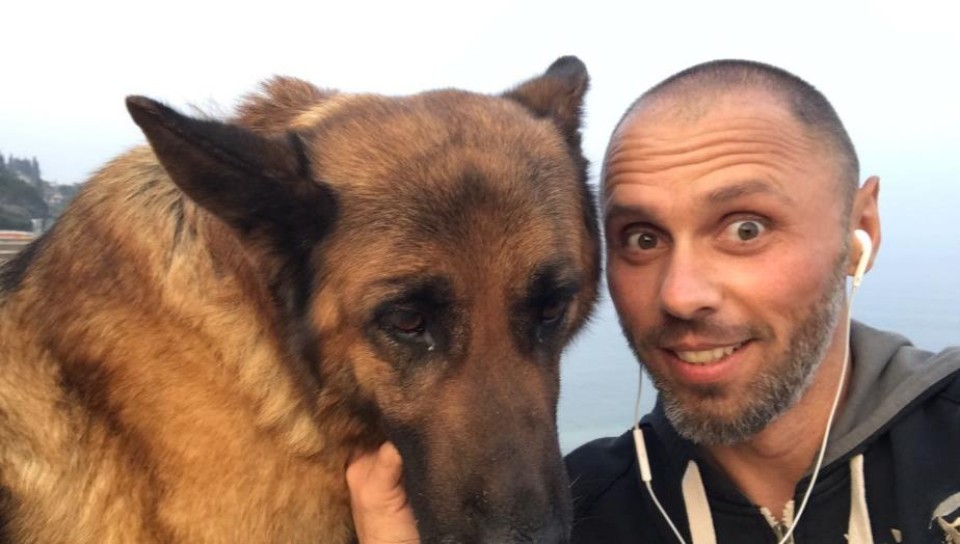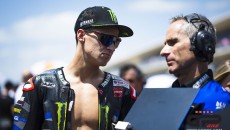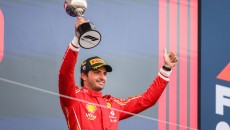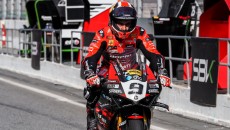When you go into a dark and treacherous tunnel suddenly and at high speed without knowing how long, it is not easy to hope to see the light again, especially if you are not prepared to tackle it and there are no escape routes.
Fifty-seven days in a row spent in a hospital bed, connected to life support equipment, bombarded by ultra-powerful and devastating treatments in an attempt to return to normality: Marco Borciani battled with the knife between his teeth after intestinal surgery, attacked fiercely by the worst possible rival: “I found out that I was ill almost by chance - Borciani's story begins - I had been having severe stomach pains for a few days, a very high fever and I was really dragging and no energy. After various and insistent specialized visits, I received the news, like a kick in the gut. I had a tumour.”
What was the most difficult moment for you?
“The hardest period was the chemotherapy; two months in hospital at Brescia, without ever going home. People came to visit me wearing protective masks and caps. A far cry from motorcycle racing: when you take on such a terrible illness, the pressure you have on you is immeasurable.”
You could not control anything. You were at the mercy of the events. But you reacted brilliantly…
“Exactly. I ate and drank, without limiting myself to the usual hospital gruel; ‘under the counter’ I allowed myself anything. I reacted and I don’t know why. Maybe because I am used to challenges. I came up with the idea that motorcycle riders, but also cyclist and athletes in general, accustomed to challenges, know how to get back on their feet with more strength and they react better to difficulties. People also helped me, both those who came to visit and friends on social networks. They gave me strength.”
The two-time Italian Superbike champion had exceptional engineers and “telemetrists” by his side who helped him rediscover hope: “doctors are more crude and direct than telemetrists. Doctors tell you what problems you have to your face. Telemetrists coddle you, they beat around the bush, they are more friendly. With my character, I prefer taking on problems head on.”
Like when you were racing?!
“I was an honest and objective rider: I never complained about the bike; if it didn’t have any problems, I never looked for excuses. When we had a bad practice session, I preferred to say ‘guys, let’s go to dinner. Tomorrow will be a better day’. A rider needs to be able to understand when he is not at the top of his game, without making excuses.”
Do you think that there are still “old school” riders like you?
“In SBK they try to emulate MotoGP in terms of professionalism, but I don’t think that ‘acting the fool’ every now and then should be considered unprofessional. I remember a very young rider who arrived in the SBK paddock: he was simple, hard on the throttle and went fast. They tamed him and he improved his speech but… zero results: he either crashes or he is slow. The first thing a rider needs it to have the right mentality.”
Does an example come to mind?
“Sure: Valentino Rossi. He has fun and you can tell. Valentino is 38 years old and he still enjoys riding the bike. On the other hand, in my opinion, Lorenzo doesn’t have fun.”
Do you find today’s Superbike entertaining?
“Not really. The format doesn’t thrill me. I preferred the old Superpole and I liked the two races on Sunday. I don’t like the technical aspect either. The excessive electronics and the different rules in the various championships don’t make it easy to have wild cards, which is the first element of entertainment in SBK. The mono-tyre formula is excellent though, but the bikes should be like the Superstock bikes.”
Borciani, who has riding in his DNA, recently got back in the saddle on a street bike. It was like touching the sky with a finger, or rather with the top fairing while doing a wheelie: “It was fantastic. Exactly like winning the Italian championship! I have won two and that was the greatest joy a rider can experience. For the first 2 or 3 laps I was a bit tense though, but by the seventh I felt as if I had never stopped riding.”
“In order to have the ‘official guarantee’ of my full recovery, I still need to go through a few ‘service checks’ (he laughs). I’ll do some more bloodwork and have a few check-ups during scheduled periods with the help of some medicine. No problem: I do a lot of walking and I am getting back into shape.”
What is your next goal?
“I want to get back to working in the sector, in my environment. I liked commentating MotoGP before I got sick. I would also like to train some young rider, maybe in Moto3 or Supersport300, which is like Sport Production where Rossi, Capirossi, Biaggi and yours truly came from.”
After this difficult journey, what message would you like to send to young people?
“There were times when I was paralyzed in my bed and I would imagine being at Mugello, with the bike leaned over between the two Arrabbiate corners. I would move around the halls of the hospital with tubes connected to machinery and a trolley that I had to cart around with me. The hospital was my paddock for two months and I roamed around just like I used to in pit lane. It takes dreams and goals if you want to recover and I had them. I would rather live less time and do what I like than hold back and live a little longer.”
One day as a lion is better than 100 as a sheep, as Marco Borciani would say.










